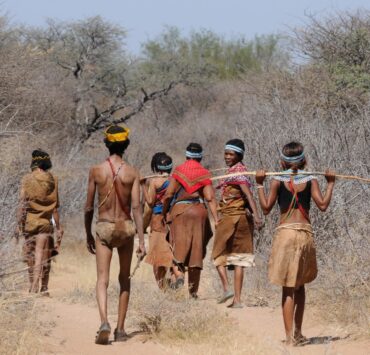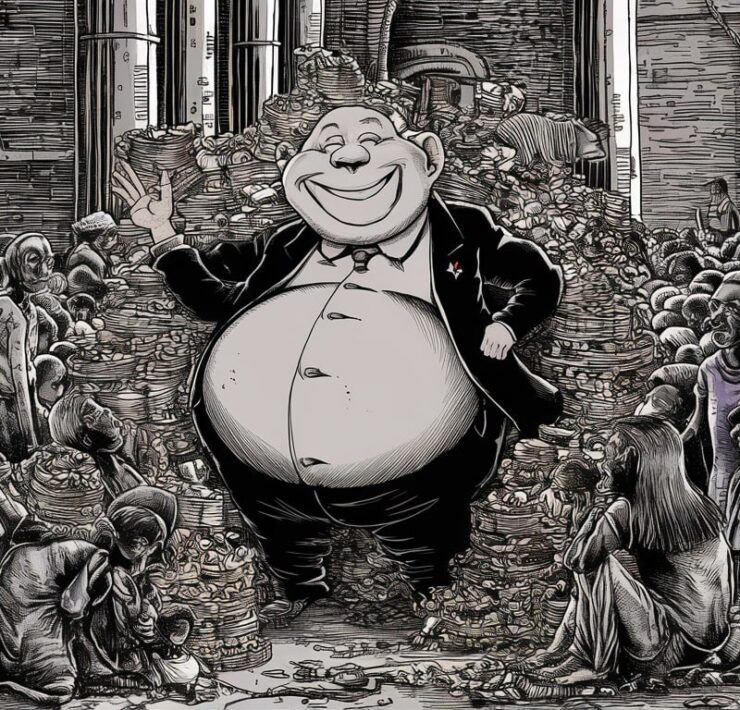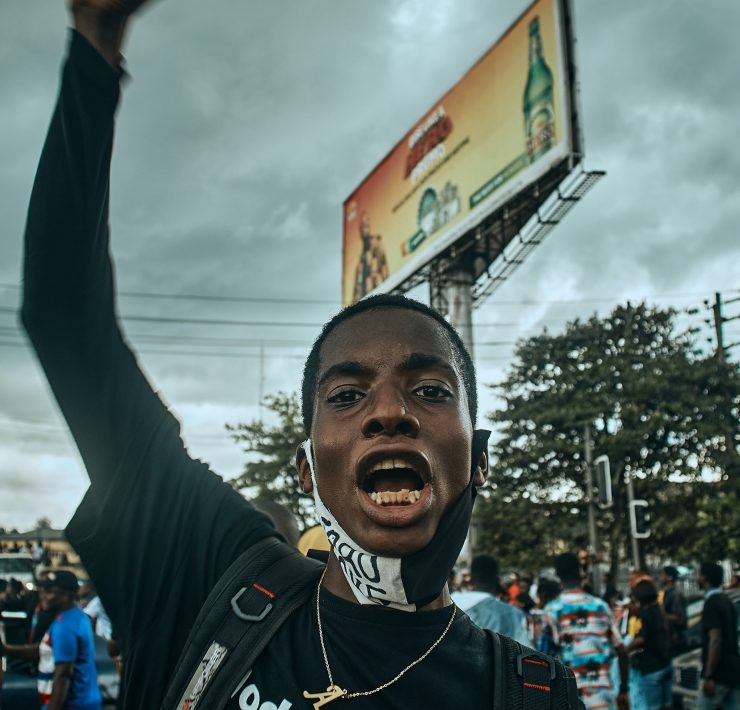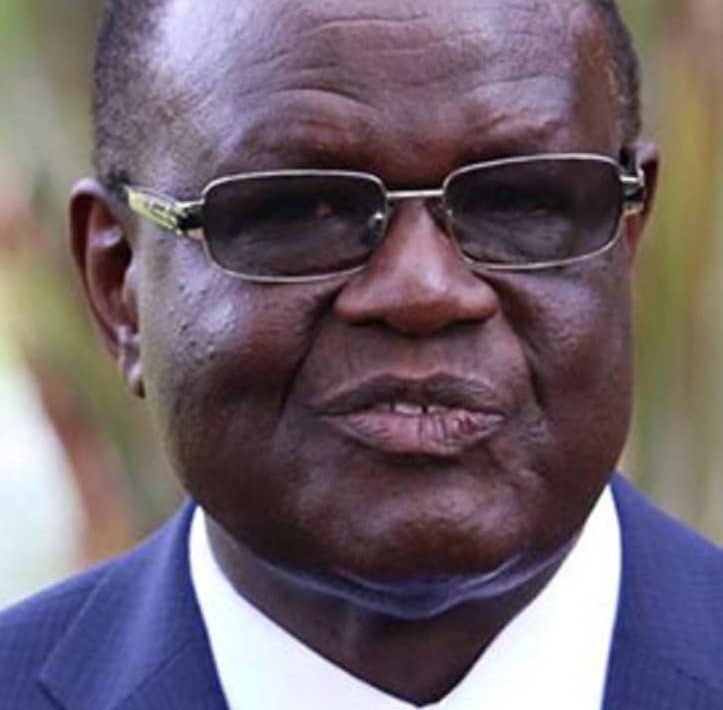South African Minister Pandor Speaks Truth to Power in the U.S.

Lawrence Freeman is a Political-Economic Analyst for Africa, who has…
March 30, 2024
South Africa is under attack by the self-proclaimed international rules-based order, which is another name for the Anglo-American establishment. Naledi Pandor, who is the equivalent of the Foreign Minister for South Africa, in her visit to the United States, is challenging their geopolitical doctrine that erroneously views the world as a zero-sum game composed of only victors and victims.
South Africa is being assaulted in the United States Congress for its right to conduct its sovereign foreign policy with other nations. Congressman John James (R-MI) has spearheaded the passage of legislation H.R. 7256 through the House Foreign Affairs Committee, which alleges that South Africa is a threat to the national security of the U.S.
H.R. 7256 Section 3, sense of the Congress (1)
that the ANC’s foreign policy actions have long ceased to reflect the stated stance of nonalignment, and now directly favor that PRC, the Russian Federation, and Hamas, a known proxy of Iran, and therefore undermines the United States national security and foreign policy interest.
The mis-named U.S.-South Africa Bilateral Relations Review Act, with bipartisan support has passed the House Foreign Affairs Committee, and can now advance to a full vote of to the House of Representatives.
According to this nefarious legislation, South Africa’s alleged “offences” include:
- Courageously bringing to the United Nations International Court of Justice, the genocidal behavior by the Israeli government of Prime Minister Benjamim Netanyahu against the Palestinian people of Gaza.
- Remaining in continuous dialogue with nations of the so called axis of evil; Russia, China, and Iran.
- For participating in China’s Belt and Road Initiative.
- For being a leader of the Global South and Non-Aligned Movement that provides an alternative to the diseased ideology of zero-sum geopolitics. .
In a March 21, press release from his office, Cong James writes: “South African officials have made a miscalculation by aligning themselves with Russia and China. It is in our national security interests for the United States to review our relationships with nations that may not share our values and align themselves with such actors.
This disgraceful piece of legislation, which attacks Minister Pandor personally, reflects the animus towards a nation that does not accept the absolute authority of the “rules-based order.” South Africa is being targeted by the United States, not for any single action it has taken, but because South Africa will not submit to the dictates of the Western political-financial elite. South Africa, other African nations and those of the Global South will rightly understand this legislation as a full scale violation of South Africa’s sovereignty.
Speaking Truth to Power
Into this environment, Minister Pandor challenged the precepts of geopolitical thinking in Washington, displaying courage, morality, diplomatic adeptness, all with a quality of grace and dignity, rarely seen in the U.S. Capital.
On March 19, I had the privilege of observing Minister Pandor in her discussion at the Carnegie Endowment for International Peace, and afterwards at an inter-faith dialogue at the South African embassy on ending the war in Gaza.
The event at Carnegie entitled: Are South Africa-U.S. Relations at a Turning Point? A Conversation With Naledi Pandor, was conducted by Dan Baer, Carnegie’s senior vice president for policy research. Baer’s argumentative attitude reflecting the prejudices of Washington, was constantly challenged by Minister Pandor, as can be seen from the partial transcript that follows.
Baer began by asking Min. Pandor to rate American political leadership. She responded, shockingly: I rate it at 6 for executive and below that for the legislature…. I’m not sure the legislators have an understanding of South Africa…. I think they make conclusions about South Africa’s international relations, without necessarily speaking to us. And this is very troubling…. If I were to make a statement about their policy, I would at least speak to us first, and attempt to understand, the cause, if any, might be of an emerging dissonance.
Regarding the United Nations, Min. Pandor said: I think we need to look at the composition and the functioning, and the capacity associated with having a Security Council. I think we should have African presence as permanent members…. I also think East Asia should have a presence. I think India being so big and not being a part of the permanent members is an odd reality….
Continuing on the UN, she said: we don’t need more multilateral bodies to replace the United Nations, but the UN needs to be reformed to be more than a monitoring body…. We need to consider the [UN] capacity for peace enforcement. We have to find a way of protecting innocent people when there’s a conflict.
Baer asserted that: the BRICS invited six new members, four of which are authoritarian regimes.
Pandor stood her ground, responding: Who makes these judgments? This assessment that you’re making…
Baer interrupted her, saying: You would challenge the premise that Iran, for example, is an authoritarian regime?
Min. Pandor: Is it your role to make that judgment?
Baer replied: I don’t think it’s me, uh, saying that. It’s widely regarded by most people….
Min. Pandor: I don’t know if they are an authoritarian regime. I do know that—
Baer interrupted: The minister of South Africa does not know if the regime in Iran is authoritarian?
Min. Pandor: I don’t have that definition in my logbook. I do have a concern about women, and their rights in Iran, and this is something I have discussed with the government of Iran, particularly my colleague, the foreign minister…. And to use our [South Africa’s] earned democratic success to say this actually works … because if we stop talking with everybody, because we define them in a particular way, I think that the models we have adopted would not have any meaning…. We use our post-apartheid progress as a way of exemplifying for others that we think this is a good practice to adopt.
Baer: It’s difficult to make the argument that South Africa’s example is available to people in Iran or China, or in Saudi Arabia….”
Min. Pandor: We’re not a perfect democracy by any means…. We have huge problems of poverty … which derive from our history … which we have not been able to fully address as an emerging democracy. But I do believe that there is a strength in being able to speak with everyone, because if you close off, I don’t think you achieve anything.
The discussion was contentious again when Baer criticized South Africa for bringing the charge of Israeli genocide against Palestinians living in Gaza, to the International Court of Justice, and not against Russia for the war in Ukraine.
Baer: What did South Africa intend to accomplish by bringing its case to the ICJ on Gaza? And how does South Africa square that with abstaining on UN resolutions with respect to Russia’s aggression to Ukraine? You compellingly spoke of the need for the UN to respond to the killing of innocent civilians, and certainly that’s happening in Ukraine. How does South Africa see connecting those two positions?
Min. Pandor: On Gaza, and what we hope to accomplish, the first thing is to stop the killing of innocent Palestinians, and what we’ve seen, what each of us watches every day, surely makes us horrified about ourselves, and our inability to stop that. So, we hoped that through the ICJ, through respect for it…as one of the international law institutions that through the provisional measures … would reduce the harm…. We knew that we may not stop the conflict in its entirety, but if we could reduce harm to the civilian population and get humanitarian aid in, we would be happy.
Min. Pandor: Provisional measures have been ignored by Israel, we’re seeing mass starvation now, and famine before our very eyes…. I think as humanity we need to look at ourselves in horror…. Speaking of Israel’s defiance to adhere to any law… there’s license, I can do what I want, and not be stopped…. The minute you allow something like this, then what you’re doing is setting in play a form of practice that will be very difficult to challenge in the future. We went to the ICJ, because we have always been told by those who know democracy better than us, that we must respect human rights, that we should respect UN institutions, that we should practice democracy, that we should end conflict in Africa. And so, we were merely practicing what is preached to us every day….
Min. Pandor: It behooves us to say, how do we find a better way…. It’s made more difficult by the most powerful countries in the world, because the impression that’s created is that it’s the weak who must respect, the weak should implement and the powerful can do what they want.
Min. Pandor: How do the powerful contribute to the greater good? What role is being played to ensure all of us hold up the highest standard? We’re the country that remains talking every week to both [Russia and Ukraine]. That’s saying we’ve got to get you in the same room. We participated in all the working groups, on the peace plan of President Zelenskyy. And we’ve now said, we think there has to be a meeting with Russia….
Talking of South Africa’s aspirations for the continent, Min. Pandor said: So, we do try to be good. But we don’t get it right all the time. … I believe we’re making an effort. And for us, the first prize would be in Africa to silence the guns, focus on development, industrialization, productive capacity, and achieving a livelihood for the majority of Africans, that places us in a different space of development. That is first prize, and first concern for us.
I completely concur with Minister Pandor: development, industrialization, and improving the livelihood of Africans is the first prize!
In the videos below, one can view Minister Pandor’s articulation of South Africa’s policy.
What's Your Reaction?
Lawrence Freeman is a Political-Economic Analyst for Africa, who has been involved in economic development policies for Africa for over 30 years. He is the creator of the blog: lawrencefreemanafricaandtheworld.com. Mr. Freeman’s stated personal mission is; to eliminate poverty and hunger in Africa by applying the scientific economic principles of Alexander Hamilton


















